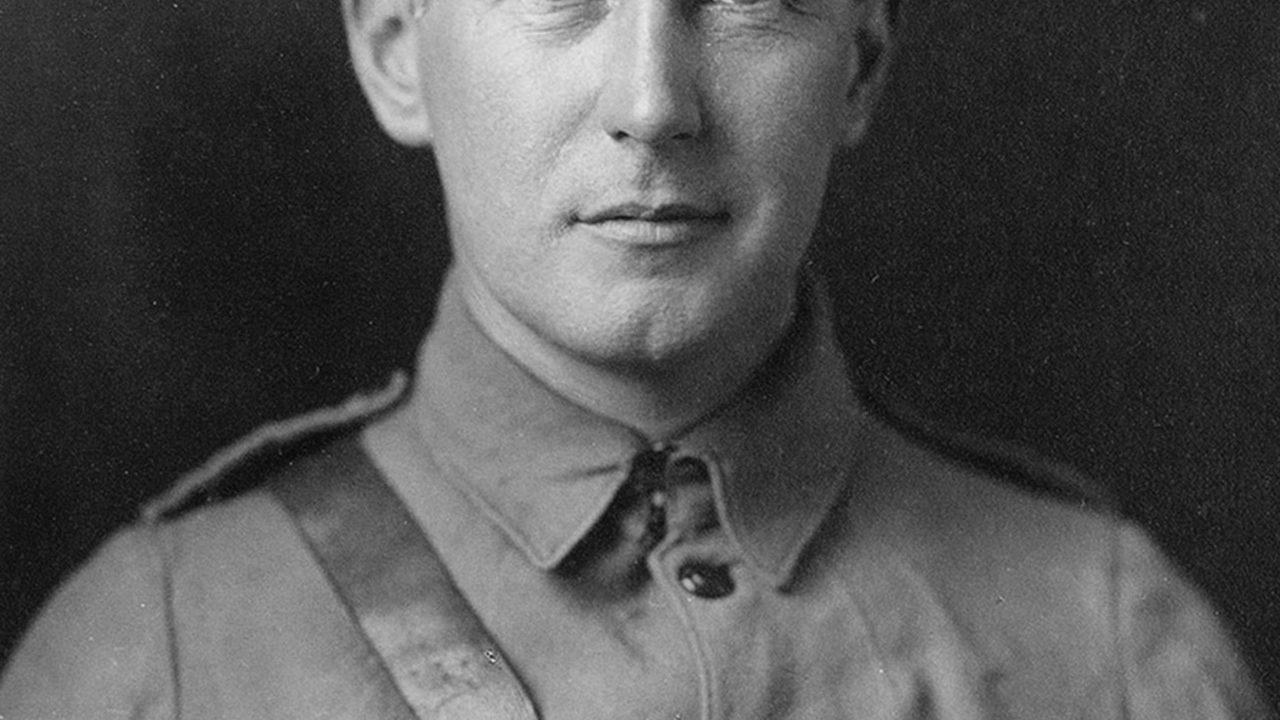On Remembrance Day (Veterans Day) members of the armed forces (soldiers, sailors and airmen) are commemorated.
The other common name for this day is Armistice Day which marks the date and time when armies stopped fighting World War I, on November 11th at 11am in 1918 (the eleventh hour of the eleventh day of the eleventh month). Some 100,000 Canadian soldiers died in the First and Second World Wars.
All government buildings fly the Canadian flag this day and people remember those who fought for Canada during a two-minute silence at 11am. Many people wear poppies before and on Remembrance Day to show their respect and support for Canadian troops. Poppies are generally handed out free but often a voluntary donation is given in exchange.
They honor and recall the poem written in battle by Veteran Doctor John Mc Crae author of In Flanders Fields, the most recognizable poem of the First World War.
The Man
McCrae was born in Guelph, Ontario and served as a gunner in the South African War. He was later a professor of medicine and physician at McGill University in Montreal. McCrae enlisted quickly at the outbreak of the First World War, hoping for a position as a gunner, but doctors were in short supply and he accepted an appointment as brigade-surgeon in an artillery brigade.
The Poem
At the Battle of Second Ypres in April 1915, McCrae spent 17 days caring for the wounded and performing surgery on Canadian and Allied troops. Exhausted and saddened by the death of a close friend, he composed In Flanders Fields during a brief rest. The poem was published on 8 December 1915 in Punch magazine, where it achieved almost instant world-wide fame. It captured the Allies’ belligerent mood and the requirement to “keep faith” with those who had already died.
The Legacy
McCrae had become an internationally-recognized poet, but continued to work as a surgeon. He served in a number of Canadian hospitals during the war and pushed himself and his staff hard. McCrae was often sick but took little rest and succumbed to pneumonia on 28 January 1918. He is buried in Wimereux Cemetery, in France. McCrae’s poem is read by millions in Canada and around the world each Remembrance Day. A history museum in the Cloth Hall in Ypres, Belgium is named after his poem; the special exhibition gallery in the Canadian War Museum, Canada’s national museum of military history, is named for McCrae.
In Flanders fields the poppies blow
Between the crosses, row on row,
That mark our place: and in the sky
The larks still bravely singing fly
Scarce heard amid the guns below.
We are the dead: Short days ago,
We lived, felt dawn, saw sunset glow,
Loved and were loved: and now we lie
In Flanders fields!
Take up our quarrel with the foe
To you, from failing hands, we throw
The torch: be yours to hold it high
If ye break faith with us who die,
We shall not sleep, though poppies grow
In Flanders fields
Composed at the battlefront on May 3, 1915
during the second battle of Ypres, Belgium


